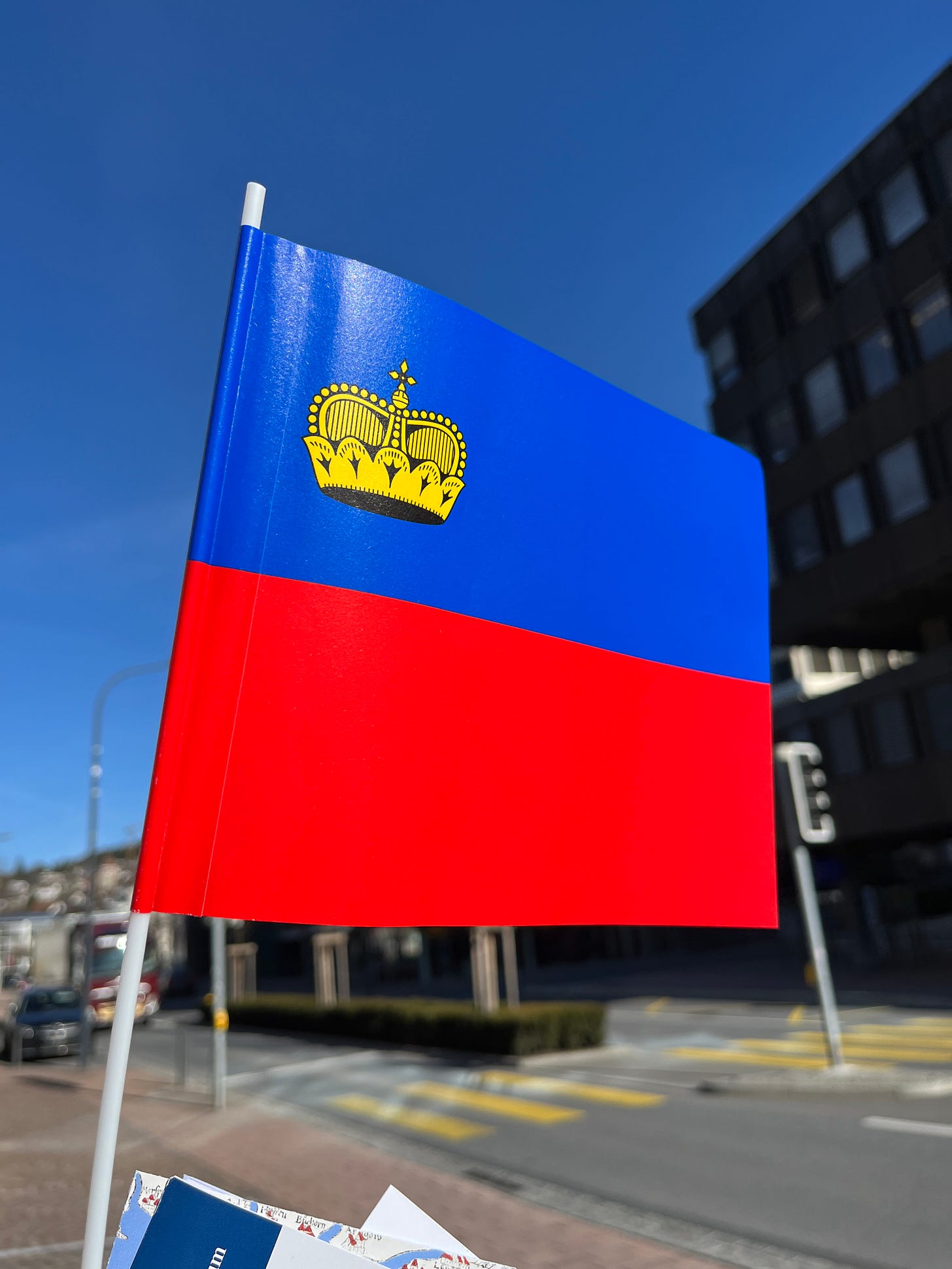What are German right-wing populists doing in Liechtenstein?
#53
Hello,
Today's post is about the connection between right-wing populism and financial investment.
I was hiking in Liechtenstein for a week (and bought a Liechtenstein flag at the tourist information centre for one Swiss franc ;-) ). The tiny state with its 40,000 inhabitants owes a significant part of its prosperity to the banking sector. 15 banks manage customer assets worth 128 billion Swiss francs, and more than a third of income tax revenue comes from the financial industry. So the people there make a significant living from the fact that wealth is brought to their little Alpine state. And these private investors coming to Liechtenstein are basically concerned with the following question: How can I invest my money safely?
This was the part I knew about.
Here comes what was new to me: Until now, right-wing populists from Germany have been welcome speakers there.
The Putin-friendly and doomsday prophet Max Otte (federal presidential candidate of the right-wing German party AfD) and Alexander von Bismarck (who took part in a meeting planning the deportations of millions of people currently living in Germany) were scheduled to speak at the so-called Liechtenstein Day, an investor event. After the revelations and the ongoing anti-AfD protests in Germany, they have been disinvited. That is the good news. Less pleasant because they have not been uninvited: Five days before Liechtenstein Day, another event is taking place in the capital Vaduz, at which right-wing populist Georg Maaßen ("red-green racial theory") and "crash prophet" Markus Krall are scheduled to speak.
Why does Liechtenstein attract such speakers?
It's probably a mutual deal. The everything-is-getting-worse speakers stir up fears about asset devaluation and probably collect handsome speaking fees for it (tickets for Liechtenstein Day cost up to 997 euros per person) and drive the fearful investor sheep into the arms of the Liechtenstein financial world, which promises safe offers for investments.
TAKEAWAY
People pay attention to danger. That's in their nature, and that's good. But in our media-driven world, this itself poses a threat. We see and hear negative things from all corners of the world. It gives the impression that everything is getting worse (it isn't). Right-wing populists are using this to attract votes, even among wealthy people. And thus support the business model of those who promise a crisis-proof investment. What can break the unholy alliance between right-wing populists and the financial world? Standard rules for the financial world, not giving right-wing populists and other prophets of doom a platform, could help (after all, their business model is based on the free movement of capital, which mainly exists in stable democracies). Above all, more information is needed among private investors about described media bias. This does not mean downplaying risks but looking more objectively at the present and future. Investors AND democracy would benefit: the rich through better investments (less conservative investment and therefore higher interest rates), and in politics, right-wing populists would receive fewer votes because their threat and doom scenarios would be given less credence.
There is also a German version of How To Save Democracy.


